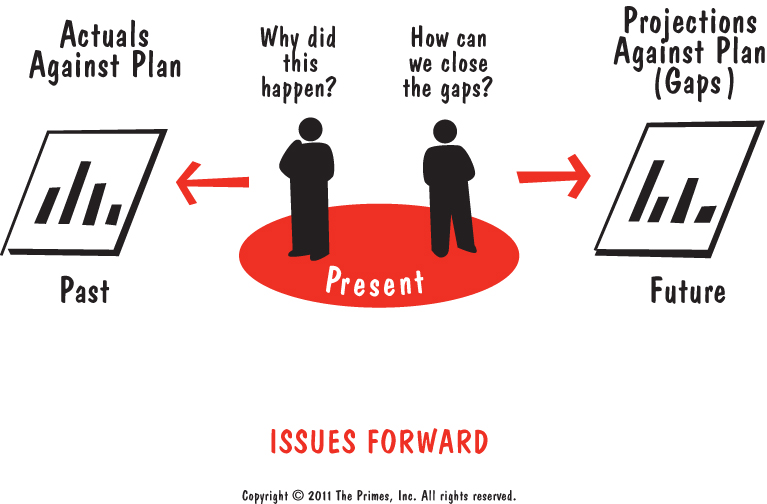
Looking behind and looking ahead are both important. What is the right ratio?
Bob Kelly, a senior executive at Arthur Andersen, hosted a gourmet dinner one night in a private dining room of the Jefferson Hotel in Washington, DC. Around the table sat a collection of high-powered, Type-A business leaders who were engaged in a spirited debate about a pressing issue.
A gracious host, Bob listened quietly while the discussion became more intense. As the dessert course arrived amid arguments around the table, Bob raised his hand slowly and said, “ISSUES FORWARD.” The room went quiet—and that simple phrase allowed us to redirect our focus to what we could affect and what we needed to do.
Years later, Peter DiGiammarino, then a member of my firm's board of directors, had a similar effect on a conversation and on the way I managed my business. A great teacher and a patient man, Peter helped me understand that leaders look at either performance reports from the past or projections for the future. Most spend their time on performance reports, perhaps because a backward glance is attractive since information is available and confirmed. However, while projections against plan are speculative, they're much more valuable. Two questions leaders must ask about the performance of their organizations or systems are as follows:
Questioning past performance:
Get The Primes: How any Group can Solve any Problem now with the O’Reilly learning platform.
O’Reilly members experience books, live events, courses curated by job role, and more from O’Reilly and nearly 200 top publishers.

